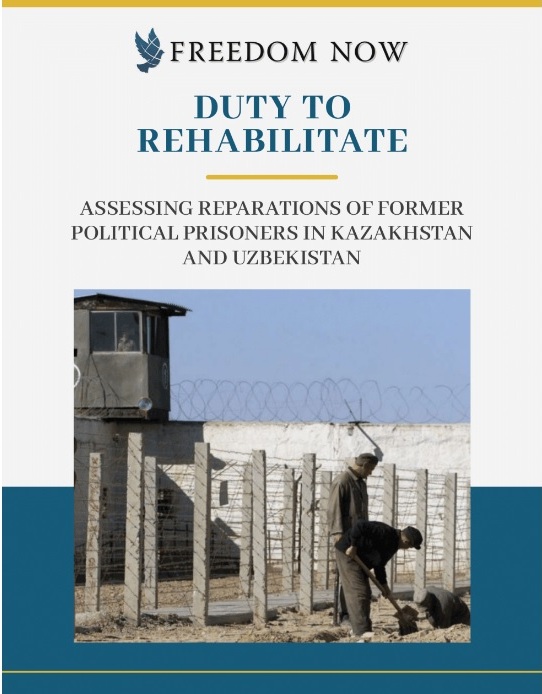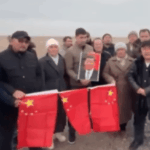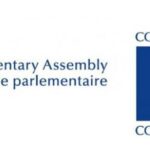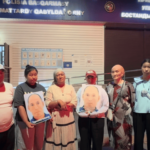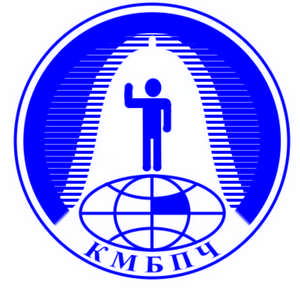On March 30th, the American non-profit organization Freedom Now released their new report titled “Duty to Rehabilitate: Assessing Reparations of Former Political Prisoners in Kazakhstan and Uzbekistan”.
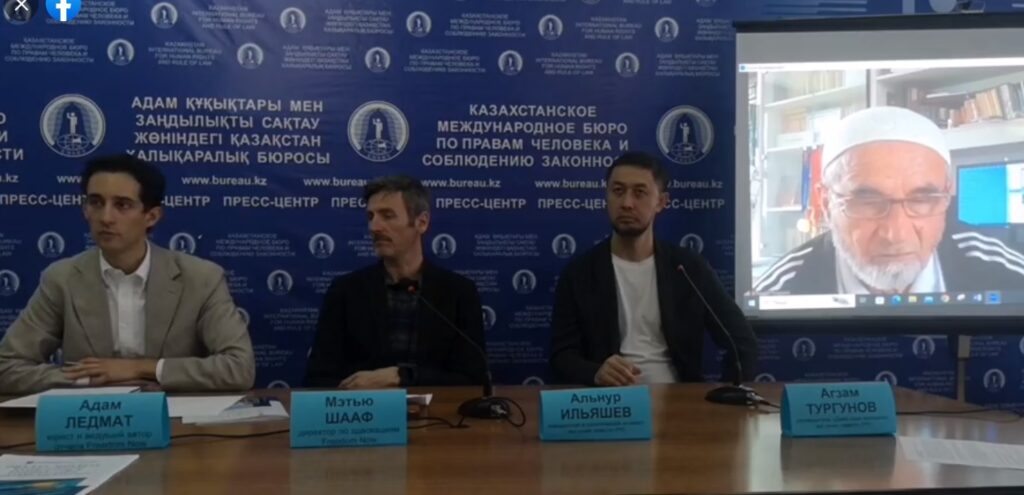
The report is focused on outlining whether or not Kazakhstan’s and Uzbekistan’s current legal system is meeting international agreements in allowing for rehabilitation for former prisoners of conscience. According to the report, the term “prisoners of conscience” refers to people who have been “detained for political, religious, or other beliefs or because of their ethnic origin, sex, sexual orientation, color, language, national or social origin, economic status, birth, or other status—who have not used or advocated violence”. In regard to Kazakhstan, the state is bound to international treaties that require the state to offer full reparations (rehabilitation is commonly referred to as reparations in international law). Most notably, Kazakhstan is party to the International Covenant on Civil and Political Rights which clearly states that imprisoning a person for exercising their political and civil rights is a violation of the individual’s human rights. The rehabilitation of former prisoners of conscious is an aspect of international human rights law that is covered by numerous sources of international law. In part, this report unfortunately demonstrates that reforms to Kazakhstan’s domestic legal framework are needed in order to meet its current obligations under international human rights law in accordance with the rehabilitation of former prisoners of conscience.
Although further reforms are needed, Kazakhstan’s current legal system should allow former prisoners of conscience, who have been previously detained and are now released, to seek reparations, provided that their detention is ruled unlawful. The report describes three different categories, based on current Kazakhstani laws, that allow former detainees to seek rehabilitation, which would include the expunging of relevant charges and financial compensation for the unlawful detention(s). The first relevant category concerns those who have been criminally prosecuted unlawfully, under the Articles 37 and 38 of the Criminal Procedure Code. The second category falls under Administrate Code articles 677 and 678 which applies to people who were wrongfully forced to undergo administrative proceedings that involved the unlawful detention, arrest, or, in some cases ‘coercive medical measures’. The final category applies to Kazakhstanis who can prove themselves to have been politically repressed in ‘the territory of the former USSR’; it is based on the Law on Rehabilitation of Victims of Massive Political Repression. Furthermore, there is a Crime-Victim Fund, created by Criminal Code Article 146, which entitles those who were unlawfully detained to a compensation fund, in cases of torture or ill treatment. However, the report calls attention to other circumstances under which a former prisoner of conscience might qualify for rehabilitation, that Kazakhstani law fails to consider: being granted amnesty, receiving a pardon, or gaining a mitigation of punishment.
Yet, the report notes that the domestic legal framework in Kazakhstan creates significant obstacles for former prisoners of conscience to receive rehabilitation. Many prisoners of conscience are released after fully serving their wrongful sentencing, and a legally considered guilty of the crime for which they were charged. Additionally, in Kazakhstan, it is standard practice to coerce a confession from detainees before releasing them to parole or granting amnesty. These coerced confessions are then used to deny rehabilitation to those former prisoners of conscience. Moreover, formers prisoners of conscience note that accessing social programs set up to help released prisoners readjust to life following detention has proven to be borderline impossible to obtain. For wrongfully detained former prisoners of conscience, the consequences of imprisonment can be incredibly damaging and include loss of employment, of businesses, seized or damaged property, trauma/injury from torture and ill treatment, and the costs associated with ensuing medical and legal services. Many struggle to reenter to workforce.
Freedom Now proposes that the Kazakhstani government adopt the following legal reforms in order to meet their international obligations to rehabilitating former prisoners of conscience. Firstly, the government of Kazakhstan can begin by acknowledging the concept of a ‘prisoner of conscience’ and implementing the term in policy and legislation guidelines. Secondly, the government should reform the legal framework to guarantee the right to rehabilitation for former prisoners of conscience that ‘is not conditioned on the acquittal of a victim’s criminal sentence’. Next, the report recommends repealing legal codes that are vague and overbroad, which are often arbitrarily applied to prisoners of conscience e.g. anti-extremism provisions. As coerced confessions were highlighted as a significant barrier to former prisoners of conscience receiving rehabilitation through Kazakhstan’s domestic legal system, Freedom Now recommends implementing procedures in state practices that would protect prisoners from making coerced statements. One suggested reform would disallow the interrogation of detainees without an independent attorney present. Additionally, the practice of requiring an admission of guilt for parole or early release should be ended and release should be granted based on good behavior or probability of recidivism. The report also advocates against ‘financial blacklisting’ of former prisoners of conscience after their release.
Finally, the report outlines procedural reforms to the rehabilitation process that currently exists in Kazakhstan. Primarily, Freedom Now suggests that the government should allow civil rehabilitation claims without prior acquittal. The government should also create a process for reversing admissions of guilt, especially as they are often signed as a condition of early release or are coerced. Additionally, the right to reopen criminal cases for a greater number of reasons, not just limited to the existence of new evidence. Also, the records of prisoners of conscience should be better preserved and new legal procedures that allow former prisoners of conscience to challenge blacklisting should be created. Overall, the report aims to provide a comprehensible outline for
Freedom Now as a non-profit organization based in the United States has been committed to protecting human rights globally, and particularly in Central Asia, where the organization has represented a number of prisoners of conscience, notably Kazakhstani citizen Zhanbolat Mamay and Uzbekistani citizen Otabek Sattoriy. The ‘Duty to Rehabilitate’ report underscores the organization’s commitment to human rights, and is a comprehensive outline of the Kazakhstani government’s failure to meet its international human rights obligations when it comes to the rehabilitation of prisoners of conscience.


